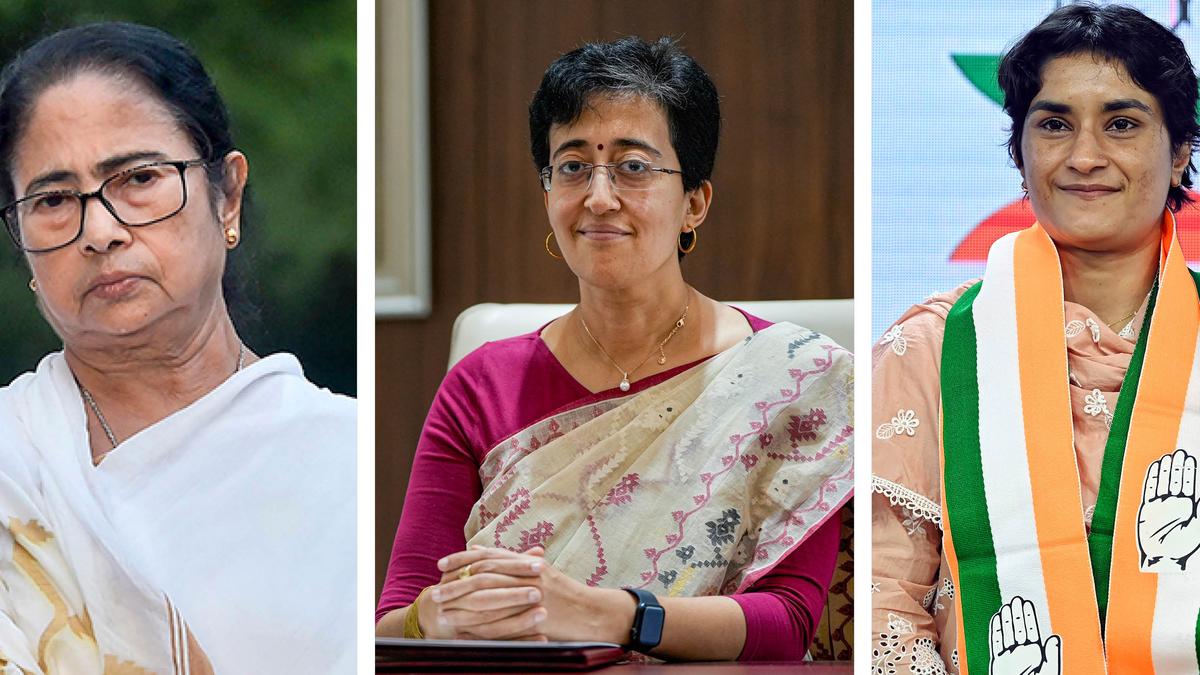
The paradox of India’s woman politician
The Hindu
Three women in Indian politics face scrutiny for their actions, highlighting the challenges and expectations placed on women politicians.
Three women in politics have grabbed headlines in recent weeks. One is a veteran politician, now facing flak for her actions, or rather inaction. The other is a highly qualified woman who chose to go into politics, and did some things that made her stand out as different but is now falling into the expected stereotype of a woman politician beholden to a male mentor. And the third, known for her physical strength and spirit of defiance, has taken the risk of entering the political circus where she will need more than these two qualities.
The three are Mamata Banerjee, Atishi and Vinesh Phogat. The first has been tested, the second has challenges hovering above her, and the third is still finding her feet.
What is common in all three cases is the expectation that somehow, because they are women, their actions will be different from their male counterparts’ if faced with similar challenges.
Indeed, for decades, those who believe more women should be in politics, and hold office, have argued that not only is this just, given that women represent half the population, but that their presence in numbers would make a qualitative difference to the nature of politics and governance. As Ranjana Kumari, an early and strong advocate for increasing women’s participation in politics in India, reiterated in one of her articles: “Women’s participation in politics is their human right as much as it is the cornerstone of their right to equal citizenship. Across the country, and throughout the world, men’s dominance in politics must be made a thing of the past.”
Unfortunately, men’s dominance in politics prevails. In India, despite several women being elected to power in the states, and at the Centre, one cannot draw any generalised conclusions about their style of governance and whether it differs from that of men in the same position. The women who can assert their individual style are those who also control their political party, as did Indira Gandhi. Others inevitably must fall in line.
Take, for instance, West Bengal Chief Minister Mamata Banerjee. Here is a woman who has made her way in the tough arena of politics without a male mentor. She has earned a reputation as a street fighter and has built a formidable political presence in her state. And she controls her party, much as Indira Gandhi did.
However, the events that followed the rape and murder of a young junior doctor at the R.G. Kar Medical College and Hospital in Kolkata on August 9 have raised serious questions about her leadership style, with critics calling out her insensitivity to an issue that concerns all women.













